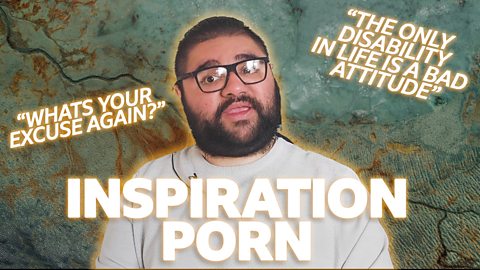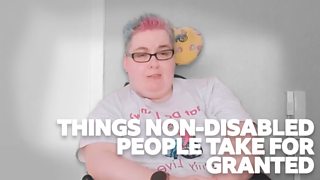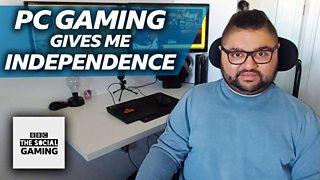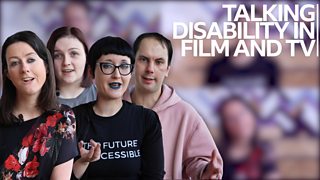"These images typically portray disabled people as objects to satisfy their able-bodied counterparts instead of making a positive impact on society."
By Sanjeev Mann // Βι¶ΉΤΌΕΔ The Social contributor // 28 June 2021

What is Inspiration Porn?
Why inspiration porn reduces people with disabilities down to objects of inspiration.
What is inspiration porn?
Have you ever seen an image of a disabled person with the message, “The only disability in life is a bad attitude”? or “What’s your excuse again?” Well this is a perfect example of something called “inspiration porn”. First coined by Stella Young in 2014, it’s a term used to describe imagery of disabled people with the sole purpose to benefit non-disabled people. It may come with good intentions, but in my view, it’s extremely is harmful to society and its portrayal of disabled people.
It directly involves depiction across the media, especially online because of social media on sites like Facebook and Instagram. Most images typically have disabled people pictured doing anything at all, usually with a message indicating that they are so brave for doing said activity.

But why is it so harmful?

These images typically portray disabled people as objects to satisfy their able-bodied counterparts instead of making a positive impact on society. They often give the impression that disabled people are inspiring, just by doing simple tasks or activities that any other able-bodied person would do like, going to university, competing in sports, working, or even getting out of bed every morning.
I am not inspiring just because I have a disability and it’s unfair to suggest that doing everyday things should be applauded just because I do it differently.
A common trope like bravery only adds to common misconceptions that have now become systematic and deeply rooted in our society. Disabled people are not here to simply inspire and motivate, but to live our lives. Yes, some of us may have traumatic or inspirational stories but some of us don’t. We have been selling a lie that disability is a bad thing.
There also seems to be the lingering idea that it is inspirational to even care for disabled people. It’s extremely patronising to think about disabled people with this view. Caring for is a hugely important job and I’m extremely grateful to receive such brilliant support – but is it really so inspirational? This view isn’t just on the surface; it’s deeply rooted in our society. There have been countless times where I’ve been stopped by a stranger so they can tell my assistance how incredibly inspiring they are.
Caring for disabled people is not a burden and the sooner people realise this the better, although we can’t forget about unpaid carers and family who feel that way because they aren’t receiving the help and support they need from government.
My opinion on how we move forward
We must collectively move away from the ideology that different equals negative connotations. This all starts with education especially through schools and colleges as well as the media.
It may have good intentions, but in my opinion, it’s frustrating that disabled people are being illustrated in this way. As a disabled person, I don’t feel like I have done anything exceptional or special by doing normal things like go to university or pursuing a career. In fact, there have been many times in the past where people have approached me and praised me for inspiring them by simply going shopping or even going outside. People seem to underestimate what disabled people are capable of and this needs to change if we want to move forward and challenge perception. It’s sad that children are growing up in a world where disability is inherently a bad thing and anything we achieve or rather don’t achieve is extraordinary.
But how do we fix this? We must collectively move away from the ideology that different equals negative connotations. This all starts with education especially through schools and colleges as well as the media. This has to be normalised and we can do it by getting more disabled people in work, more role models on TV, social media, sport and film. The more we see, the more chance our attitudes will change, even if it is on a subconscious level.
The next time you see inspiration porn with a disabled person remember to see the person, not an object that motivates or inspires you. In the words of the late Stella Young, inspiration porn gives the impression “that living with a disability makes you exceptional. It’s not a bad thing and it doesn’t make you exceptional.”




